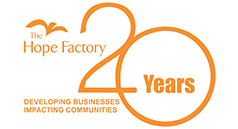Transformation - the conversation SA is NOT having...
Published by www.smartprocurement.co.za on 5 August 2015
Given South Africa's historic context, the much-discussed triple socio-economic challenges of extreme unemployment, poverty and inequality have and continue to be along racial lines. It is inevitable, therefore, that solutions to address these issues require a tailored redistributive approach and hence government's introduction of the B-BBEE Act, which came into force in 2007. Nonetheless the South African economy has not significantly grown and as a result we now have the much-debated, newly-introduced amendments to the B-BBEE Act to better drive the compliance agenda through, among other things, increased focus on preferential procurement and supplier development. However without the support of sincere and open dialogue and buy-in, legislation on its own will only drive compliance at a minimal level.
What is needed to turn this ship around is society's buy-in to transform the socio-economic landscape. This requires a deeper and closer engagement and collaboration by all key stakeholders. They need to specify what holistic transformation is and thereafter identify attitudinal and structural obstacles that currently stand in the way of this.
Here are a few recommendations which seek to spark thoughts and dialogue towards creating a fairer and inclusive society which South Africans can look up to:
- Strong leadership – South Africa needs strong, courageous leadership. Given the breadth and depth of holistic transformation, it cannot solely reside in any one government portfolio. This naturally implies inter-ministerial collaboration as well as openness to allow external viewpoints.
- National level – there is a need to create effective platforms where all key role players come together and share ideas that will enable the country to combat its challenges through continual dialogue and practical initiatives.
- Private sector – this sector needs to embrace transformation and realise that the longer term benefits will lead to holistic empowerment, a bigger skills pool and greater economic participation that far outweighs the cost, inconvenience and pain of B-BBEE compliance.
- The Enterprise and Supplier Development industry needs to work together. Let us share our wins and harness our strengths - this is a job too big and crucial for any one of us to do alone.
- Black-owned business owners - need to be afforded opportunities for developmental assistance, preferential funding, supplier trade terms and more for sustainable business growth.
At its core, transformation is an issue of the heart. One that requires all South Africans (government, the private sector, NGOs and ordinary citizens), to engage in a constructive conversation so that we can all play a role to grow South Africa.










